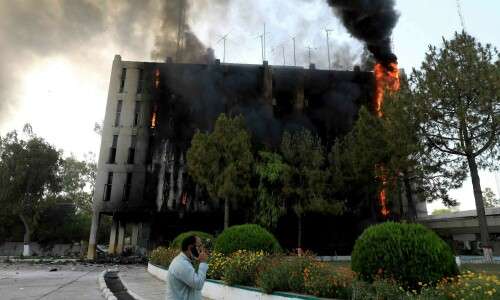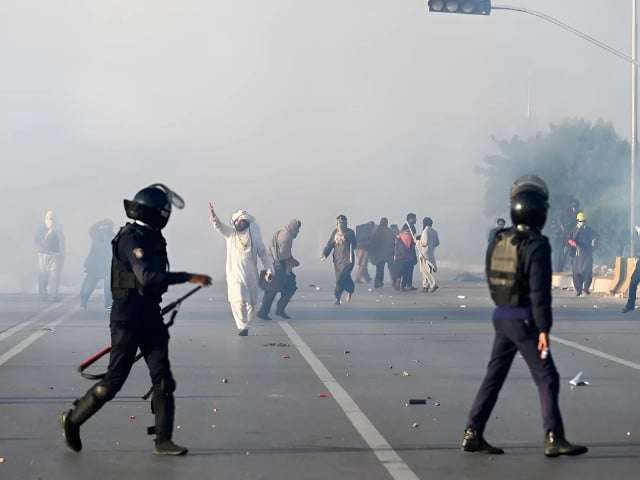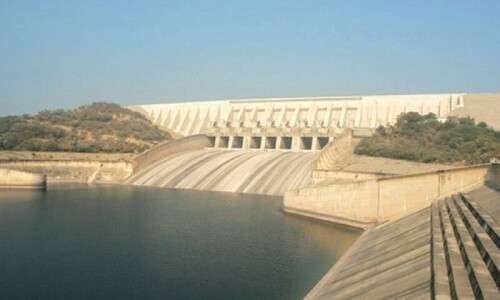Introduction
In a significant development regarding the May 9, 2023 riots, the Inter-Services Public Relations (ISPR) announced that mercy petitions from 19 convicts involved in the violent protests have been accepted on humanitarian grounds. The acceptance of these petitions marks a critical moment after military courts sentenced 85 civilians, including those implicated in the nationwide unrest. This move reflects the balancing of due legal process with the principles of compassion.
Background of the May 9 Riots
The Events of May 9, 2023
On May 9, 2023, violent protests erupted across Pakistan following the unexpected arrest of Pakistan Tehreek-e-Insaf (PTI) founder Imran Khan. The protests were not limited to a single city, but spread throughout the country, affecting multiple provinces and cities. The rioting led to considerable damage to public buildings and military installations.
Key locations targeted in the protests included:
- Lahore Corps Commander’s House (Jinnah House)
- General Headquarters (GHQ) in Rawalpindi
- Inter-Services Intelligence (ISI) Offices in Faisalabad
- Pakistan Air Force (PAF) Base in Mianwali
- Radio Pakistan Building in Peshawar
The toll from the riots was severe, resulting in at least 10 deaths and hundreds of injuries, along with widespread destruction of properties. Approximately 40 public and military buildings suffered severe damage, with an estimated loss of Rs 2.5 billion, including Rs 1.98 billion in losses borne by the military alone.
Impact on the Country
These events have been described as a coordinated attack by the PTI leadership, with state authorities claiming that the violence was planned and executed with the involvement of political factions. The subsequent judicial proceedings focused on holding those responsible accountable while addressing the complex legal issues around military trials for civilians.
Military Trials and Legal Developments
The Military Trials
In the aftermath of the May 9 riots, military courts took the lead in sentencing civilians, including those involved in the violence. On December 21, 2023, military courts sentenced 25 individuals to prison terms ranging from two to 10 years. A week later, an additional 60 civilians received sentences under similar terms.
However, the legitimacy of these military trials was challenged both politically and legally. The Supreme Court of Pakistan, in a landmark decision on October 13, 2023, ruled that military trials of civilians were unconstitutional. The court declared that civilians would no longer face trial in military courts but rather in criminal courts under the jurisdiction of ordinary laws.
Legal Repercussions
The Supreme Court’s decision was met with mixed reactions. While it was praised for upholding the rule of law, it also led to legal complications. On December 13, 2023, in a 5-1 majority verdict, the Supreme Court suspended its ruling temporarily, pending final decisions in intra-court appeals. This decision allowed military courts to continue with their proceedings but restrained them from delivering final convictions or acquittals.
The March 2024 verdict further complicated matters, permitting military courts to pronounce reserved verdicts but prohibiting convictions or acquittals until the final resolution of the appeals. This approach highlighted the ongoing legal battles over the rights of civilians tried under military jurisdiction.
Mercy Petitions: A Step Toward Compassionate Justice
The Acceptance of Mercy Petitions
Amidst the ongoing legal process, the Inter-Services Public Relations (ISPR) announced that the mercy petitions of 19 convicts involved in the May 9 riots had been accepted on humanitarian grounds. The convicts had exercised their right to appeal and requested a reduction in their punishments.
Details of the Mercy Petitions
The ISPR statement outlined the following details:
- 67 petitions were received in total, with 48 processed for consideration by the Courts of Appeal.
- 19 petitions were accepted based on humanitarian considerations, under the legal framework.
- The convicts who received mercy included individuals involved in violent incidents at key locations such as FC Cantt Peshawar, Bannu Cantt, Punjab Regimental Centre Mardan, and the ISI Office in Faisalabad.
Some of the individuals whose sentences were reduced included:
- Muhammad Ayaz (sentenced to two years for involvement in the FC Cantt Peshawar incident)
- Sami Ullah (sentenced to two years for involvement in the Bannu Cantt incident)
- Laeeq Ahmed and Amjad Ali (both sentenced to two years for the ISI Office Faisalabad incident)
These individuals, after completing the required procedural formalities, will be released from prison.
Legal and Political Reactions
Political Reactions to the Decision
Following the announcement of the remission, PTI Chairman Barrister Gohar Ali Khan reiterated his party’s stance against military trials for civilians. He emphasized that the issue remained unconstitutional and should be adjudicated by civilian courts rather than military tribunals.
Gohar acknowledged the decision to remit sentences as a “good thing,” but he stressed that there should be no conviction stigma attached to individuals tried in military courts. He argued that such trials lacked legitimacy, and the matter should ultimately be decided by the Supreme Court.
FAQs
1. What were the May 9 riots?
The May 9 riots were violent protests triggered by the arrest of PTI founder Imran Khan. The protests led to the destruction of several public and military buildings across Pakistan.
2. What are mercy petitions, and why were they accepted for the May 9 convicts?
Mercy petitions are formal requests made by convicts to have their sentences reduced or pardoned. In this case, 19 convicts involved in the May 9 riots had their sentences reduced on humanitarian grounds.
3. What did the Supreme Court say about military trials?
The Supreme Court ruled that military trials of civilians were unconstitutional and ordered that future cases should be tried in civilian courts. However, this ruling was temporarily suspended to allow for appeals to be heard.
4. How many people were sentenced for the May 9 riots?
A total of 85 civilians were sentenced by military courts for their involvement in the May 9 riots, with sentences ranging from two to 10 years.
5. What is the political significance of the decision to remit sentences?
The decision to remit the sentences of 19 convicts is seen as a step towards justice tempered with compassion. However, it also reflects ongoing debates around the legality of military trials for civilians.
Conclusion
The acceptance of mercy petitions for 19 convicts in the May 9 riots serves as a significant example of balancing justice and compassion. While military trials for civilians remain a contentious issue, the remission of sentences demonstrates the commitment to fair legal processes. The matter will continue to be subject to legal scrutiny, with the Supreme Court of Pakistan poised to make final decisions on the matter.
ALSO READ
https://flarenews.pk/2025/01/02/oppo-reno-12-5g-camera-review/



